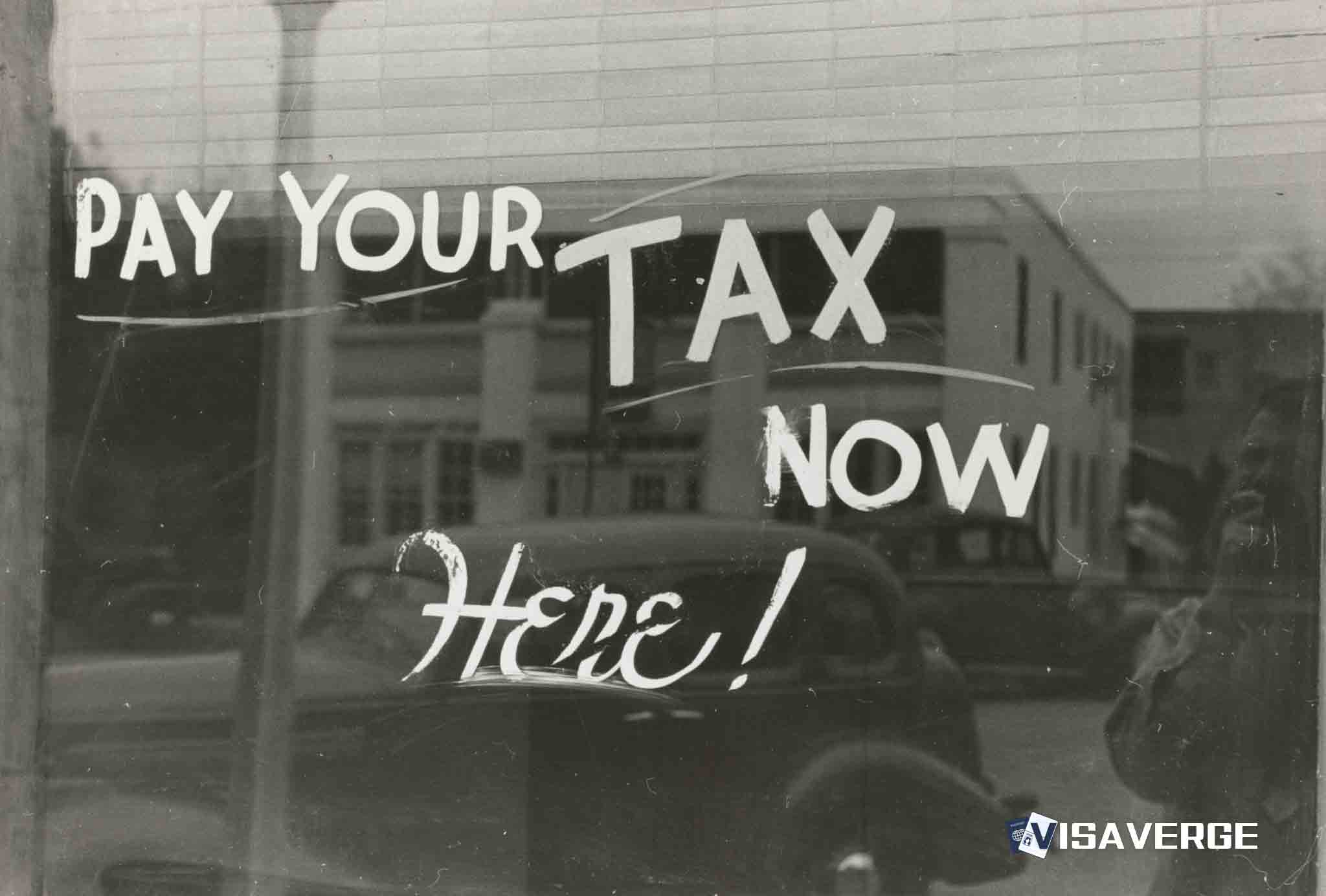Key Takeaways
• In June 2025, several Indian H-1B visa holders from Bengaluru and Hyderabad faced visa cancellations after long stays in India.
• H-1B visa rules require continuous employment and physical presence in the U.S., strict enforcement triggered cancellations.
• A 2024 pilot allows some H-1B visa renewals inside the U.S., reducing risky travel abroad for stamping.
A growing number of Indian professionals working in the United States 🇺🇸 on H-1B visas have recently faced unexpected visa cancellations after spending extended periods in India, especially those from Bengaluru and Hyderabad. Reports surfaced on June 19-20, 2025, as several workers were denied re-entry to the United States 🇺🇸 and had their H-1B visas revoked. This development has caused concern among Indian tech workers, their families, and employers, raising questions about the rules for H-1B visa holders and the risks of staying outside the United States 🇺🇸 for too long.
What Happened: H-1B Visa Cancellations After Stays in India

In mid-June 2025, multiple Indian nationals holding H-1B visas reported being turned away at U.S. ports of entry and having their visas cancelled. Many of these individuals were based in Bengaluru and Hyderabad, two major tech hubs in India. The affected workers had spent several months in India, either for personal reasons, remote work, or due to delays in visa stamping appointments.
Social media platforms like Instagram and Twitter became sources of first-hand accounts, with workers sharing their experiences and warning others about the risks of extended stays outside the United States 🇺🇸. While the exact number of cancellations is not publicly available, the trend has caught the attention of immigration lawyers, tech companies, and advocacy groups.
Why Are H-1B Visas Being Cancelled?
The main reason for these cancellations appears to be perceived violations of H-1B visa terms, specifically regarding the requirement to maintain continuous employment and physical presence in the United States 🇺🇸. H-1B visas are employer-sponsored, meaning the visa holder must work for the sponsoring employer and usually remain in the United States 🇺🇸 to keep their status.
If an H-1B worker spends too much time outside the United States 🇺🇸, immigration officers may question whether the person still meets the visa requirements. Prolonged absence can be seen as abandoning the job or the visa status, leading to cancellation or denial of re-entry.
Official Policy: No New Rules, but Stricter Enforcement
As of June 2025, there has been no formal announcement from the U.S. government about a new policy specifically targeting H-1B visa holders who stay in India for long periods. The June 2025 Visa Bulletin from the U.S. Department of State shows some movement in priority dates for Indian nationals but does not mention any changes in H-1B policy or mass cancellations.
However, enforcement actions seem to be increasing. Immigration officers at U.S. consulates and ports of entry are closely reviewing the travel history and employment status of H-1B visa holders who have spent significant time outside the United States 🇺🇸. This means that even without a new law or rule, the existing requirements are being applied more strictly.
How H-1B Visa Rules Work
To understand why these cancellations are happening, it helps to know the basic rules for H-1B visas:
- Employer-Sponsored: The visa is tied to a specific U.S. employer and job.
- Continuous Employment: The worker must remain employed by the sponsor.
- Physical Presence: The worker is expected to live and work mainly in the United States 🇺🇸.
- Extended Absence: Long stays outside the United States 🇺🇸 can be seen as abandoning the job or visa status.
If a worker leaves the United States 🇺🇸 for an extended period, especially without clear proof of ongoing employment, immigration officers may decide the person is no longer eligible for the H-1B visa.
Impact on Bengaluru and Hyderabad Workers
Bengaluru and Hyderabad are home to many of India’s top tech professionals, many of whom work for U.S. companies or have been sent to the United States 🇺🇸 on H-1B visas. The recent cancellations have hit these communities hard, causing:
- Job Loss: Workers denied re-entry cannot return to their U.S. jobs, putting their employment at risk.
- Family Disruption: Families who rely on the H-1B worker’s income and status face uncertainty.
- Employer Challenges: U.S. companies lose skilled workers and may face project delays.
- Community Anxiety: Other H-1B holders in Bengaluru and Hyderabad worry about their own travel plans and visa status.
Voices from the Community
Indian-origin business leaders and visa advocates have spoken out about the challenges H-1B workers face. Ajay Jain Bhutoria, a well-known advocate, has pushed for changes to make visa renewals easier. He supports a pilot program that allows certain H-1B holders to renew their visas inside the United States 🇺🇸, so they do not have to travel back to India for visa stamping.
Some tech professionals have also raised concerns about the risks of remote work and long stays in India. They worry that even if they are working for their U.S. employer from India, immigration officers may not see this as meeting the H-1B requirements.
Social Media Debate and Policy Controversy
The issue has sparked heated debate on social media. Some users have called for ending the H-1B program altogether, while others defend its importance for both the United States 🇺🇸 and India 🇮🇳. The Indian-American community, in particular, has voiced strong opinions about the need for fair and clear rules.
What Should H-1B Visa Holders Do?
If you are an H-1B visa holder, especially from Bengaluru or Hyderabad, and you are currently in India or planning to travel, here are some important steps to follow:
1. Maintain Compliance
– Stay employed: Make sure you have ongoing, active employment with your U.S. sponsor.
– Limit time abroad: Avoid long stays outside the United States 🇺🇸 unless absolutely necessary.
2. Use Domestic Visa Renewal (If Eligible)
– The pilot program for domestic visa renewal allows some H-1B holders to renew their visas without leaving the United States 🇺🇸. Check if you qualify by visiting the U.S. Department of State’s official page.
3. Before Returning to the United States 🇺🇸
– Check visa validity: Make sure your visa is still valid and not marked as cancelled.
– Consult legal experts: Speak with your employer’s immigration lawyer or a trusted immigration attorney before booking travel.
4. If Your Visa Is Cancelled
– Seek legal help: Contact an immigration attorney right away to discuss options like reapplying, consular processing, or filing an appeal.
– Gather documents: Collect proof of ongoing employment, pay stubs, and other records that show you meet H-1B requirements.
How Employers Are Affected
U.S. companies that sponsor H-1B workers, especially those with offices in Bengaluru and Hyderabad, face several challenges:
- Workforce Disruption: Losing key employees can delay projects and hurt business operations.
- Compliance Risks: Employers must ensure their foreign workers follow all visa rules.
- Legal Costs: Companies may need to hire lawyers to help affected employees or handle government inquiries.
Employers are encouraged to keep close contact with their H-1B workers, provide clear travel guidelines, and support them in using domestic visa renewal options when possible.
Expert Opinions: Why Is This Happening Now?
Immigration law experts say that the recent cancellations are not due to a new law but rather stricter enforcement of existing rules. The H-1B visa has always required active employment and physical presence in the United States 🇺🇸. However, the COVID-19 pandemic and the rise of remote work made it easier for some workers to spend long periods in India while still working for U.S. employers.
Now, as travel returns to normal, immigration officers are paying closer attention to travel patterns and employment records. They may see long absences as a sign that the worker is no longer meeting the visa requirements.
Background: The H-1B Visa Program
The H-1B visa allows U.S. employers to hire foreign workers in specialty jobs that require at least a bachelor’s degree. It is especially popular in the tech industry, with many workers coming from India, particularly Bengaluru and Hyderabad.
Key facts about the H-1B program:
- Annual Cap: There is a yearly limit on the number of new H-1B visas issued.
- Employer Sponsorship: The visa is tied to a specific employer and job.
- Duration: H-1B visas are usually granted for up to three years, with the possibility of renewal.
- Family Members: Spouses and children can come to the United States 🇺🇸 on H-4 visas.
The Domestic Visa Renewal Pilot Program
In 2024, the U.S. government launched a pilot program allowing certain H-1B holders to renew their visas inside the United States 🇺🇸. This was meant to reduce the need for workers to travel back to India for visa stamping, which can be time-consuming and risky.
- Who Qualifies: Not all H-1B holders are eligible. Check the official guidelines.
- How It Helps: Reduces travel costs and the risk of being stuck outside the United States 🇺🇸 due to visa delays or cancellations.
However, this program does not solve the problem of visa cancellations for those who have already spent long periods outside the United States 🇺🇸.
What the June 2025 Visa Bulletin Says
The June 2025 Visa Bulletin, published by the U.S. Department of State, provides updates on visa number availability and priority dates for Indian nationals. While it shows some movement in processing times, it does not mention any new rules about H-1B visa cancellations or extended stays in India.
For the latest updates, you can check the U.S. Department of State Visa Bulletin.
Looking Ahead: What’s Next for H-1B Holders?
As reported by VisaVerge.com, the U.S. government is expected to continue strict enforcement of H-1B visa rules, especially regarding physical presence and active employment. There may be more visa cancellations for those who do not meet these requirements.
At the same time, there is hope that the domestic visa renewal program will expand, making it easier for H-1B holders to keep their status without risky travel. Policy discussions are also likely to focus on how to handle remote work and the realities of a global workforce.
Practical Tips for H-1B Visa Holders
- Stay Informed: Follow official government websites like USCIS and the U.S. Department of State for updates.
- Keep Records: Save all documents showing ongoing employment, such as pay stubs, work emails, and contracts.
- Limit Travel: Only travel outside the United States 🇺🇸 when necessary, and keep trips as short as possible.
- Use Legal Help: If you face any visa issues, contact an immigration attorney right away.
Conclusion: Staying Compliant in a Changing World
The recent wave of H-1B visa cancellations for workers from Bengaluru and Hyderabad who stayed in India too long is a reminder of how important it is to follow visa rules closely. Even without new laws, stricter enforcement can have serious consequences for workers, families, and employers.
By staying informed, using available programs like domestic visa renewal, and seeking legal advice when needed, H-1B holders can reduce their risks and protect their future in the United States 🇺🇸. As the situation develops, all stakeholders—workers, employers, and policymakers—will need to work together to find solutions that fit the changing world of work and travel.
Learn Today
H-1B visa → A U.S. work visa allowing foreign professionals to work in specialty occupations requiring a bachelor’s degree.
Visa cancellation → Official revocation of a visa, preventing re-entry or continued work in the U.S.
Continuous employment → Requirement that H-1B holders must remain actively employed by their sponsoring U.S. employer.
Domestic visa renewal → A pilot program letting eligible H-1B holders renew visas without leaving the United States.
Visa Bulletin → Monthly U.S. Department of State publication updating visa number availability and priority dates.
This Article in a Nutshell
Indian H-1B visa holders in Bengaluru and Hyderabad face visa cancellations after extended India stays. Strict enforcement of continuous employment and U.S. presence rules threatens careers. A pilot visa renewal program inside the U.S. offers hope but doesn’t cover all affected workers. Legal advice and compliance are essential.
— By VisaVerge.com













